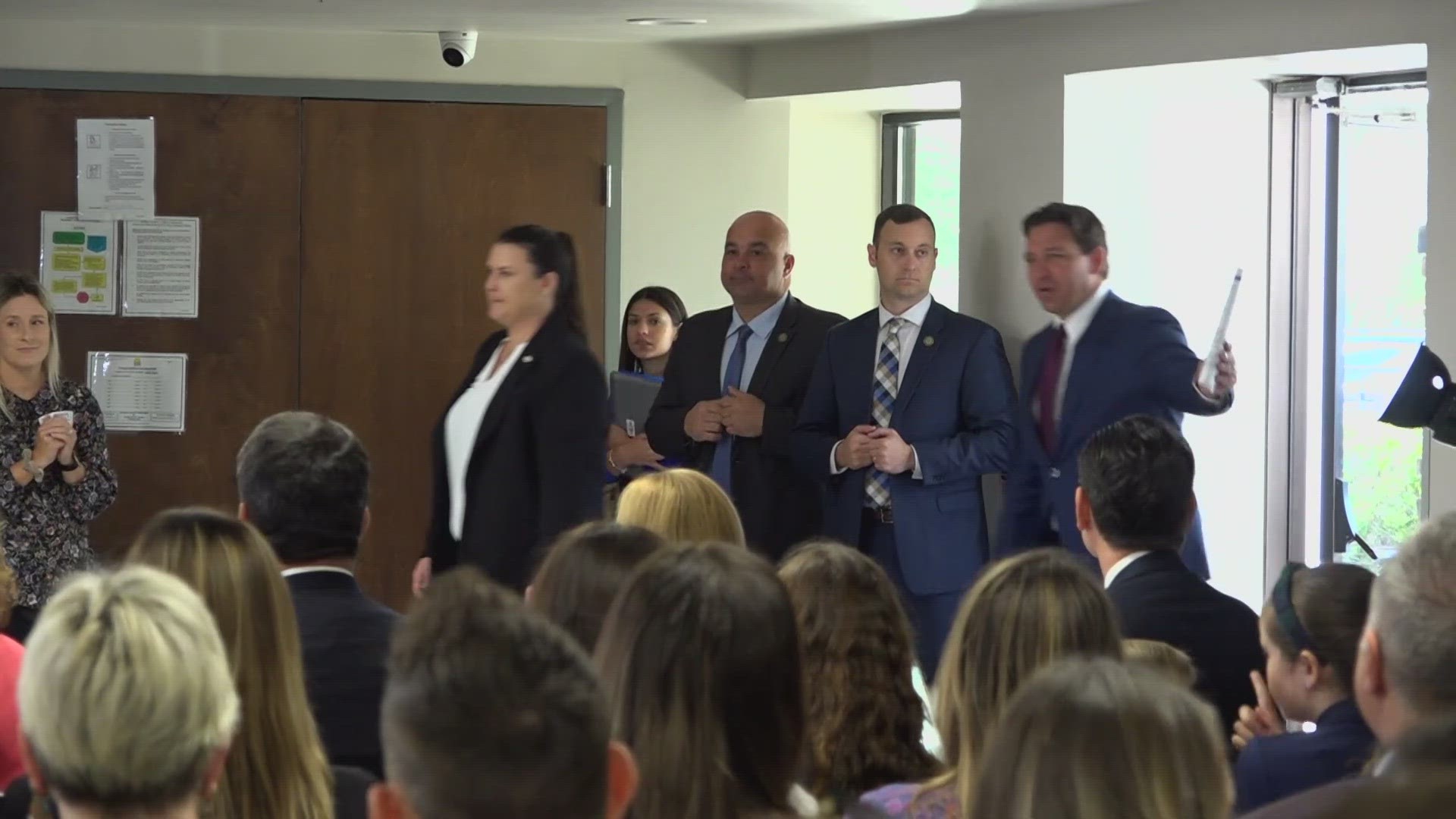JACKSONVILLE, Fla. — Florida Gov. Ron DeSantis signed House Bill 3 into law during a press conference in Jacksonville Monday morning. The bill prohibits social media platforms from allowing children 13 and under to create new accounts and requires the platforms to terminate current accounts held by that age group. The bill also requires parents' consent to allow social media use for 14- and 15-year-olds.
Attorney General Ashley Moody who was also at the press conference, said the bill is "taking care of issues before they overwhelm our state." She also said social media companies have "algorithms specifically designed to addict people," and in this case to what the law is focused on, minors specifically.
"Social media is the primary platform in which children are trafficked," Florida House Speaker Paul Renner said. "More crimes against children happen on these platforms than any other venue."
Renner said children don't know they are being sucked into "addictive technology" and that as a result, anorexia rates and self-harm have "skyrocketed." However, Renner did not clarify if these instances have happened statewide, nationally, or both.
"We're going to let the court system and the lawsuits work to address the harm that is being caused by the platforms knowingly and intentionally," Renner said.
He compares platforms like Instagram, TikTok and Snapchat to tobacco, saying both social media platforms and tobacco companies use addiction as their business models.
"There's a federal law that says, '13 and under you can't have these algorithms,' but the platforms know 9, 8 and 7-year-olds that are on these platforms day in and day out, and they're doing nothing because they're making so much money," explained Renner.
What makes this new law different than federal laws is that it gives more power to the attorney general to enforce violations up to $50,000 if these social media platforms still allow children 13 years old or younger to engage on their sites. It also gives power to parents, too.
"A parent can also pursue damages if they tell their children, 'Look you can't get on," Renner said. "The platform still lets them on, even with the law doesn't allow them," Renner told First Coast News.
A majority of state leaders agree: this is an issue that has impacted thousands of children and young adults throughout the state.
"We've lost a whole generation that's really had a lot of suffering with these addictive platforms and so, we're going to approach it from that standpoint and make sure that there's an ability to create these kinds of lawsuits that will modify their behavior," Renner said.
DeSantis said: "We didn't focus on content [in the bill]." He instead said that the "addictive features" children are exposed to on the apps, are addressed in the law.
“Now with things like social media and all of this, you can have a kid in the house, safe seemingly, but you still can have predators that can get right in there, into your own home,” DeSantis explained.
DeSantis, Renner, Moody and others supporting the bill now law, say that kids who partake in "infinite scrolling" and receive/give likes, get a hit of dopamine, a hormone that gives you feelings of pleasure, satisfaction and motivation.
"In Florida, you are no longer going to build your business on the backs of our children," said Florida Representative Tyler Sirois. "We are going to protect our kids from this digital fentanyl."
Duval County School Board Member April Carney said aside from the new law, a new policy is also coming that will only affect kids in the county.
"As a parent, as a school board member, I am going to be putting forward policy here in Duval County that we are no longer allow cellphones during the day, and that would be coming forward this year."
The new law takes effect Jan. 1, 2025.

